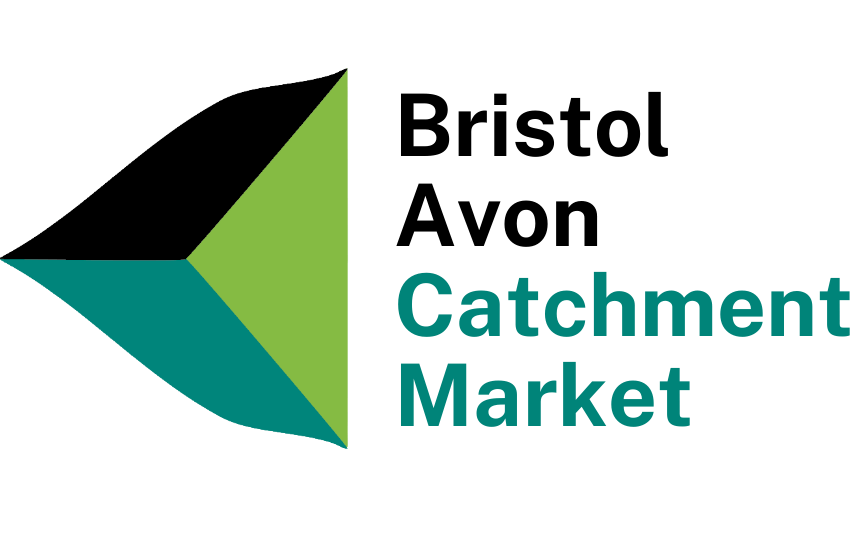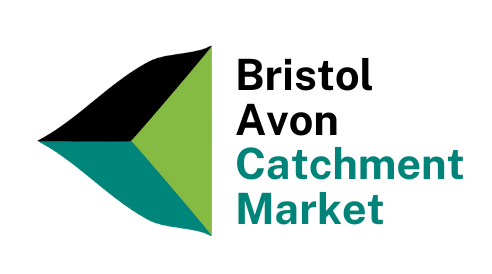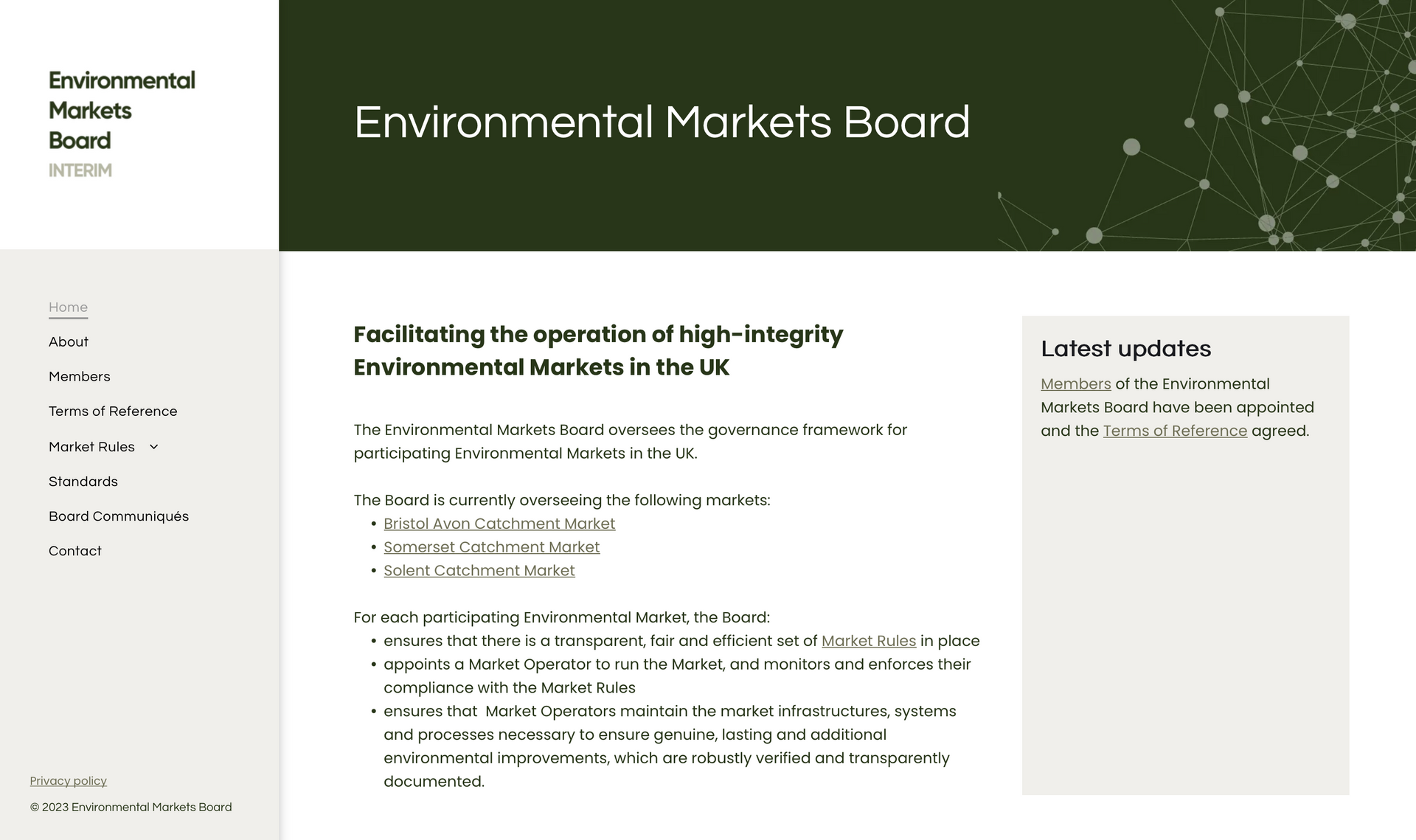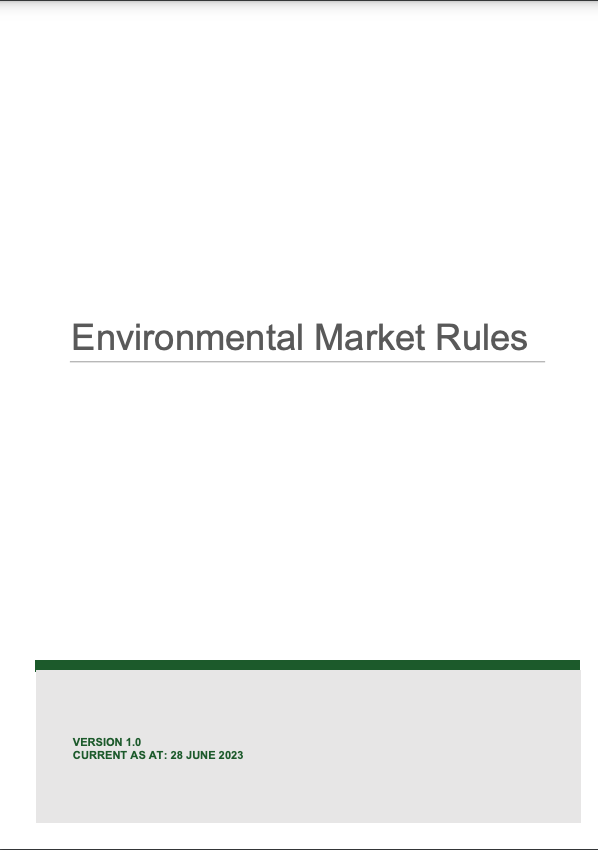Overview: how the market works and how to participate
The Bristol Avon Catchment Market is an environmental services market that aims to accelerate the delivery of Nature-based Projects such as the creation of new woodlands and wetlands to deliver increased habitat for biodiversity, reduce carbon and mitigate water pollution.
Market governance
The Market is underpinned by a transparent set of Market Rules and a robust governance framework.
The Environmental Markets Board oversees the governance framework for participating Environmental Markets in the UK, including the Bristol Avon Catchment Market.
The Board:
- ensures that there is a transparent, fair and efficient set of Market Rules in place
- appoints a Market Operator to run the Market, and monitors and enforces their compliance with the Market Rules
The Settlement mechanism has been designed by independent experts from the University of Exeter to ensure that project suppliers are paid fairly for the range of environmental services they deliver, and that the cost is shared equitably among credit buyers.
Find out more about the work of the Environmental Markets Board
Find out more about the Market Settlement Mechanism
Market Rules
The purpose of the Market Rules is to provide a transparent, fair and efficient governance framework for the operation of Environmental Markets.
The Market Rules ensure that Market Participants understand their rights and responsibilities and provide a robust and reliable mechanism to facilitate the supply of Nature-based Projects and trading the Environmental Services generated by these Projects.
Market operator

EnTrade
EnTrade creates and operates high-integrity online markets for nature that deliver cleaner water, increased biodiversity, reduced greenhouse gas emissions and natural flood management. EnTrade is the Market Operator for the Somerset Catchment Market.
Market process
The diagram below highlights the market process for businesses interested in buying Environmental Credits and landholders interested in supplying Nature-based Projects to the market.
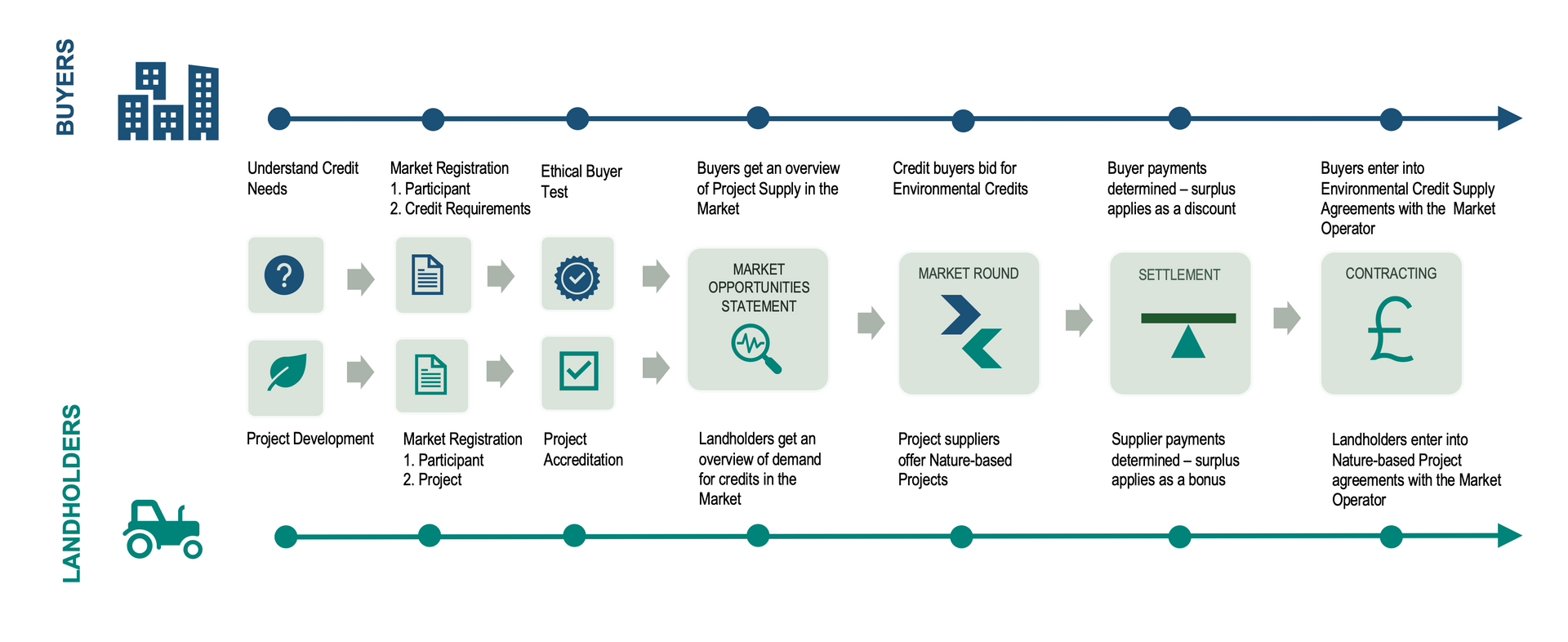
Watch this 5 minute animated film to learn more about how the market works, and how the settlement mechanism ensures fair payments for both buyers and sellers.
Landholder participation
The Bristol Avon Catchment Market is looking for nature recovery projects such as the creation of woodlands, wetlands and species-rich grassland. The market process for landholders is outlined below.

Project Development
The first step for landholders and farmers is to express their interest in developing Nature-based Projects that can provide habitat for wildlife and deliver other environmental services such as nutrient mitigation and carbon sequestration.
If you are interested in developing a Nature-based Project for the Bristol Avon Catchment Market please submit an Expression of Interest.

Market registration
To participate in the market, landholders (or their agents) must register as a Market Participant.
Landholders (or their agents) need to register their proposed Nature-based Project, providing the information needed to be accredited for the environmental services it will deliver. By registering a Project, a landholder is making a commitment to make an offer in the Market.
Participant and Project Registration for the Bristol Avon Catchment Market Round 1 is now closed. If you are interested in participating in the next Market Round, then please submit an Expression of Interest.

Project accreditation
To participate in the market, projects must undergo a rigorous development and accreditation process to ensure they genuinely contribute to nature’s recovery. Nature-based project agreements will be put in place to ensure projects are maintained to the right standard.
The Market Operator accredits the Environmental Services delivered by the Projects in accordance with approved standards.

Market Opportunities Statement
Before each Market Round, a Market Opportunities Statement will be released which provides an overview of the demand for environmental services and the opportunities for landholders to supply projects.

Market round
In the Market Round landholders that have Registered a Project for sale in a Market Round must make a Project Offer.
A Project Offer needs to cover:
- the use of the Project Land for the term of the Landholder Agreement:
- the cost of designing and delivering the Project to the Project Specification (including securing relevant consents);
- the cost of maintaining the Project in accordance with the Management Plan;
- the cost of the compliance reporting required.

Settlement
The market settlement mechanism has been designed by the Land, Environment, Economics and Policy Institute at the University of Exeter. The process, known as the Lindsay Mechanism, ensures payments are fair both for project suppliers and businesses buying environmental credits.
Surplus from trades is allocated fairly between suppliers (a bonus on their offer) and buyers (a discount on their bid).

Contracting and Delivery
If successful in the market, landholders will enter into a Nature-based Project Agreement with the Market Operator to deliver the project and maintain it to the required standard.
A payment schedule will be agreed, and regular monitoring will make sure projects are delivering the expected environmental outcomes.
Credit buyer participation
The Bristol Avon Catchment Market makes it easier for organisations to meet their environmental goals.
Organisations with voluntary commitments or regulatory obligations such as Biodiversity Net Gain, Nutrient Neutrality, Net Zero Carbon emissions and other environmental commitments can purchase Environmental Credits from verified projects that can be used to demonstrate delivery on these commitments.
The process for businesses interested in buying Environmental Credits from the market is summarised below.

Understand credit needs
Businesses can express their interest in purchasing Environmental Credits (type and quantity) through the EOI process

Environmental Credit Requirement Registration
To participate in the Market, buyers (or their agents) need to:
- register as a Market Participant
- register the type and quantity of Environmental Credits that they require.

Ethical Buyer Test
Potential buyers of environmental credits through the Bristol Avon Catchment Market must meet the required ethical buyer requirements in order to participate in the market. This includes a commitment to use the credits purchased through the market to meet genuine obligations and commitments.

Market Opportunities Statement
Before each Market Round, a Market Opportunities Statement will be released which provides an overview of the demand for environmental services and the opportunities for landholders to supply projects.

Market round
When the Market Round opens, buyers enter bids for the quantity and price for each type of environmental credit that they need into the Market Platform.

Settlement
The market settlement mechanism has been designed by the Land, Environment, Economics and Policy Institute at the University of Exeter. The process, known as the Lindsay Mechanism, ensures payments are fair both for project suppliers and businesses buying environmental credits.
Surplus from trades is allocated fairly between suppliers (a bonus on their offer) and buyers (a discount on their bid).

Contracting and Delivery
Successful bidders will enter into an Environmental Credit Supply Agreement with the Market Operator and receive the credits purchased.
Ensuring market integrity
The Environmental Markets Board ensures that Market Operators maintain the market infrastructures, systems and processes necessary to ensure genuine, lasting and additional environmental improvements, which are robustly verified and transparently documented.
All market participants must comply with competition law and avoid anti-competitive behaviour.
Examples of anti-competitive behaviour include:
- Setting offer prices for Nature-based Projects in consultation with other landholders
- Setting bid prices for Environmental Credits in consultation with other businesses
- Coordinating with other market participants about participating in market rounds (eg taking it in turns to participate)
To ensure market integrity, the Market Operator will report any suspicious activity to the Competition and Markets Authority.
If you have any questions, please do not hesitate to
contact the Bristol Avon Catchment Market Team
Glossary of key terms
Catchment Market
A Catchment Market is an on-line marketplace where Nature-based Projects can be sold, and credits for the Environmental Services delivered by these Projects can be bought.
Nature-based Project
Nature-based Projects are habitat creation, restoration or improvement projects that deliver Environmental Services. Examples of Nature-based Projects include creating wetlands, planting new woodlands, and reversion of arable farmland to species-rich grassland.
Environmental Services
Environmental Services include biodiversity and water quality improvements, natural flood management, carbon sequestration and other outcomes delivered by Nature-based Projects.
Environmental Credits
Environmental Credits are a form of intangible property that represent the Environmental Services delivered by a Nature-based Project.
Market Operator
The Market Operator (MO) is the organisation that establishes and operates the Catchment Market. EnTrade is the Market Operator for the Bristol Avon Catchment Market.
The Market Operator:
- Registers the Projects for sale in the Market and the Expressions of Interest to buy Environmental Credits
- Reviews Project designs and calculates the Environmental Credits the Projects will deliver
- Registers the number and type of Environmental Credits generated by each Project
- Manages the market bidding and settlement processes
- Enters into Environmental Credit Supply Agreements with Credit Buyers, and Nature-based Project Agreements with landholders
